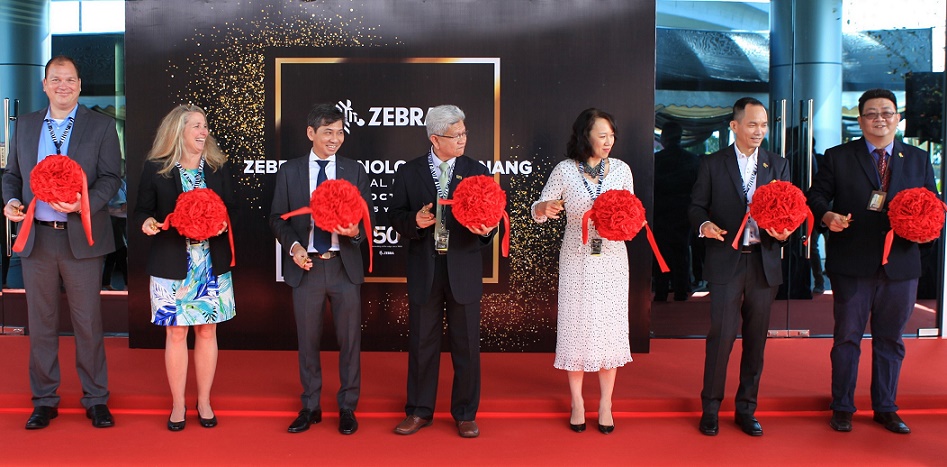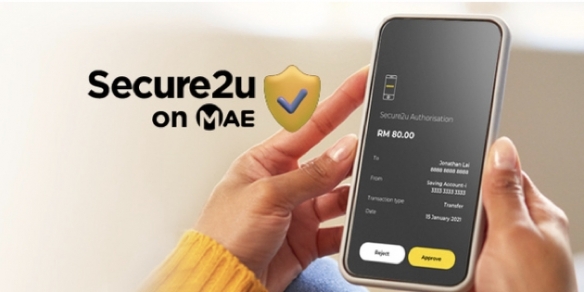Zebra Technologies expands footprint in Penang
By Tan Jee Yee November 6, 2019
- Bayan Lepas facility expanded to 58,000 square feet, 500 local employees
- Penang remains important, investments on talent pool and upskilling to continue

WHEN Zebra Technologies Corporation recently announced that they will be reinforcing its commitment to the Malaysian market, it wasn’t just about increasing their local talent pool (which they are) or offering more products to help with the country’s digital transformation (which is certain).
The “commitment” here includes an expansion to its Penang facility – located at the Bayan Lepas Industrial Zone – from its initial 36,000 square feet to 58,000 square feet. The inclusion of a new wing is necessary, if only to house the company’s growing Penang workforce, which grew from 100 people in 2014 to 500 employees today.
Zebra’s Penang facility (which started when the company acquired Motorola Solutions’ Enterprise business in 2014) serves as a Global Business Services Hub, meant to support the US-based company’s global and regional markets.
They do so through a wide range of shared services functions, which include a Contact Centre, Repair Supply Chain, Network Operating Centre (NOC), Finance Shared Service Centre, Marketing Contact Centre, Partner Interaction Centre and Contract Renewal, among others. Ninety percent of its current Penang workforce, the company says, is comprised of local talent.
“As Penang embraces the concept of becoming a Smart City by 2030, the state will be experiencing a digital transformation that is set to bring about technological improvements for both individuals and companies,” says Zebra Technologies Asia Pacific vice president and general manager Ryan Goh.
“Businesses across all industries need to adopt the right technological solutions to create smart, data-driven environments that promote greater efficiency and productivity. We are committed to guiding enterprises in Malaysia and Penang in their digital transformation journeys by empowering their front-line workers with the right tools they need to succeed.”
Penang prime
As for why they’re deciding to continue expanding their Penang footprint, Goh says that there are two key reasons.
“We decided to expand our investment [in Penang] rather than pull away because of the talent pool. Penang has an excellent talent pool, and is a natural talent magnet for the northern region of Malaysia,” he tells Digital News Asia.
“The talent pool here is also very culturally adaptable, which is very important as we serve global and regional customers here,” he adds, noting that the local talents’ multi-lingual abilities has been proving useful in this area.
As a Global Business Services Hub, the Penang facility operates on a 24/7 basis, with morning and evening shifts to support customers from across the globe. “The talent we were able to attract, their adaptability, made us decide that this is the place to grow our footprint,” he says.
The company will be furthering their focus towards acquiring talent for their Penang operations.
“Moving forward, we will continue to place emphasis on human capital in our Penang operations by constantly investing in the upskilling of our employees and offering knowledge-transfer opportunities. We are confident that both our employees and the people of Penang are on their way to becoming digital leaders, in line with the state government’s Penang 2030 ambition,” Goh notes.
Goh says that the company considers the APAC region as one of their fastest-growing markets. Going forward, APAC will continue to be an area for growth and investment for the company.

Empowering businesses in the digital age
To those unfamiliar, Zebra Technologies was founded in 1969 with solutions that serve businesses from retail to healthcare, transportation and logistics and manufacturing.
Its primary solutions include mobile computers and tablets, printers, barcode scanners and data capture, RFID solutions, locationing solutions, and related software. The company is working closely with over 10,000 partners across 100 countries.
These solutions, Goh says, are primarily to help businesses gain insights into their operations and enable their frontline workers to make real-time decisions. He lists Target as one of their main partners.
Through the use of mobile computers (which range from handheld computers to wearable computers and handheld RFID readers), Target store associates can gain instant access to store inventory and advise customers on stock availability on the spot, as well as point out the nearest store with stock available. The associates can even help customers arrange for pickups or have the items delivered to their homes.
Essentially, these solutions help complete the transaction at the point of interaction with the customer, which Goh says is crucial in order to retain customers. “In the retail environment, when customers leave the stores they will go elsewhere to purchase the items they need, thus losing sales,” he explains.
Zebra’s solutions also include building IoT (internet of things) products that deliver real-time information to business owners. SmartLens, for instance, uses an RFID reader in a room to provide accurate and real-time information on a business’ inventory, such as how much stock is available (Goh says that it can even go into details like the size of a clothing type and how many is available of each).
SmartLens, Goh says, can provide up to 90% of inventory accuracy. With this, businesses can make the right decisions when it comes to stock re-ordering in a quicker, more responsive manner.
On freight and robotics
Another solution, called SmartPack, allows the company to address the problem that delivery companies face when it comes to loading freighters and trucks. For the most part, freight and logistic companies lose money when their freighters and trucks are not optimally loaded.
SmartPack, through the use of 3D sensors and cameras, enables supervisors to have real-time visibility into the loading process. They can, for example, tell when a trailer or truck is fully optimised when it leaves the dock, and enables them to take action immediately if it wasn’t.
This, Goh says, will become increasingly important with e-commerce companies that continuously strive for shorter delivery times. “In this space, you need to have real-time visibility so you can make faster, more accurate decisions. This is how we can help them [businesses] go through their digital transformation,” Goh says.
In the near future, Zebra Technologies might be introducing their own robotics products. Goh says that the company has invested in a robotics company called Locus Robotics, which produces autonomous mobile robots that help optimise warehouse operations.
The robots are meant to operate alongside people when it comes to picking and moving products across warehouses. Goh calls this a “Co-Bot” principle – collaboration between robots and humans to improve efficiency. “Robots can do certain things better but they can’t do it all without humans,” he says.
With Malaysia moving into the fourth Industrial Revolution, perhaps these are the solutions digitally-savvy companies are looking for.
Related Stories :


